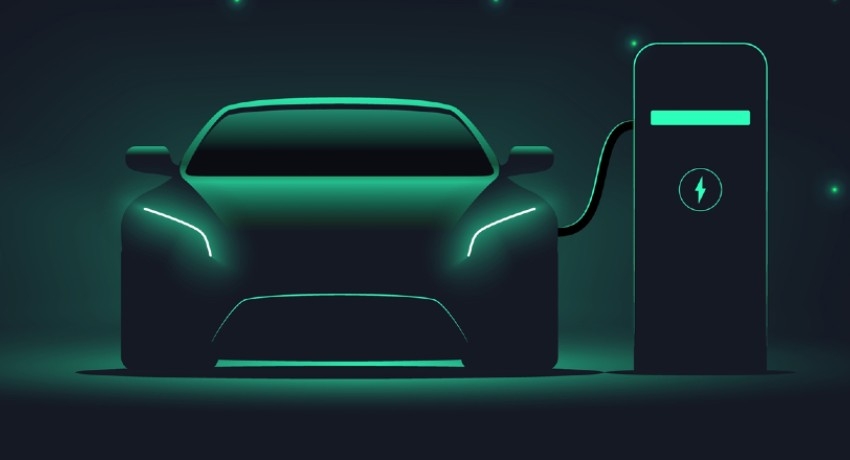The EV Revolution: How Electric Vehicles Are Driving Towards a Cleaner Future
The automotive industry has been rapidly transforming in the past few years, with electric vehicles (EVs) at the forefront of this change. With the increasing demand for sustainable modes of transportation and the need to reduce carbon emissions, EVs are gaining more popularity and acceptance.
Electric cars are not a new concept, but they have undergone significant changes in recent years. As technology continues to advance, EVs are becoming more accessible, affordable, and practical for everyday use. From long-range batteries to more charging infrastructure, the electric vehicle industry is evolving quickly. In this article, we will explore the future of electric vehicles and the latest developments in the industry.
Bigger and Better Batteries
One of the biggest challenges in the electric vehicle industry is creating batteries that can provide a long-range and charge quickly. However, battery technology has come a long way in recent years, and automakers are continuing to make strides in this area. Tesla, for example, has been working on developing a million-mile battery that can last for decades. This battery would be a significant breakthrough in the industry and could reduce the cost of EVs.
Other automakers are also working on developing better batteries for electric cars. Volkswagen is investing heavily in solid-state batteries, which have the potential to provide a longer range and charge more quickly. Toyota has been working on developing solid electrolyte batteries, which could increase the range of EVs and reduce the risk of battery fires.
Charging Infrastructure
Another significant challenge in the electric vehicle industry is the lack of charging infrastructure. To make EVs more practical and convenient for everyday use, there needs to be a reliable network of charging stations available to drivers. However, the industry is making progress in this area, and the number of charging stations is increasing rapidly.
Major companies such as BP, Shell, and Tesla are investing in building more charging stations across the world. The UK government has announced a plan to install over 100,000 charging points across the country, while California has set a target of having 250,000 electric vehicle charging stations by 2025.
Autonomous Driving
Autonomous driving is another area where the electric vehicle industry is making progress. Self-driving cars have the potential to revolutionize transportation and make it safer and more efficient. Tesla has been a leader in this area, and its Autopilot system is already in use on its vehicles. Other automakers such as BMW, Mercedes-Benz, and Audi are also developing autonomous driving systems.
One of the benefits of electric vehicles is that they are better suited for autonomous driving than traditional gasoline-powered vehicles. Electric cars have fewer moving parts, making them easier to maintain and more reliable. They also have more space for sensors and cameras, which are essential for autonomous driving.
New Players in the Market
The electric vehicle market is becoming increasingly competitive, with more players entering the market. Traditional automakers such as Ford, General Motors, and Volkswagen are investing heavily in electric vehicles and launching new models. Tesla, which was once the only player in the market, now faces stiff competition from these established automakers.
New companies such as Rivian, Lucid Motors, and Fisker Inc. are also entering the market. These companies are focusing on developing high-end, luxury electric vehicles that offer cutting-edge technology and features. Rivian, for example, is developing an electric pickup truck and SUV that are designed for adventure and outdoor enthusiasts.
The Rise of Electric Buses
Electric buses are also gaining popularity, particularly in cities where air pollution is a significant problem. Many cities are transitioning to electric buses as a way to reduce emissions and improve air quality. Companies such as Proterra and BYD are developing electric buses that can travel long distances and charge quickly.
Electric buses have several advantages over traditional diesel buses. They are quieter, emit fewer pollutants, and require less maintenance. They can also save cities money in the long run, as electric buses have lower operating costs and can last longer than diesel buses.
The Future of Electric Vehicles
As the world becomes more aware of the need to reduce carbon emissions and combat climate change, electric vehicles will play an increasingly important role in the transportation industry. The electric vehicle market is projected to continue to grow in the coming years, with more models and advancements in technology.
Battery technology will continue to improve, and automakers will develop more affordable electric cars with longer ranges. Charging infrastructure will also expand, making it easier for drivers to charge their vehicles on the go. Autonomous driving will become more common, making transportation safer and more efficient.
The electric vehicle industry will also see more players entering the market, including traditional automakers and new companies. This increased competition will lead to more innovation and better electric vehicles.
Labels: automobile, Interesting, Technology


0 Comments:
Post a Comment
Subscribe to Post Comments [Atom]
<< Home